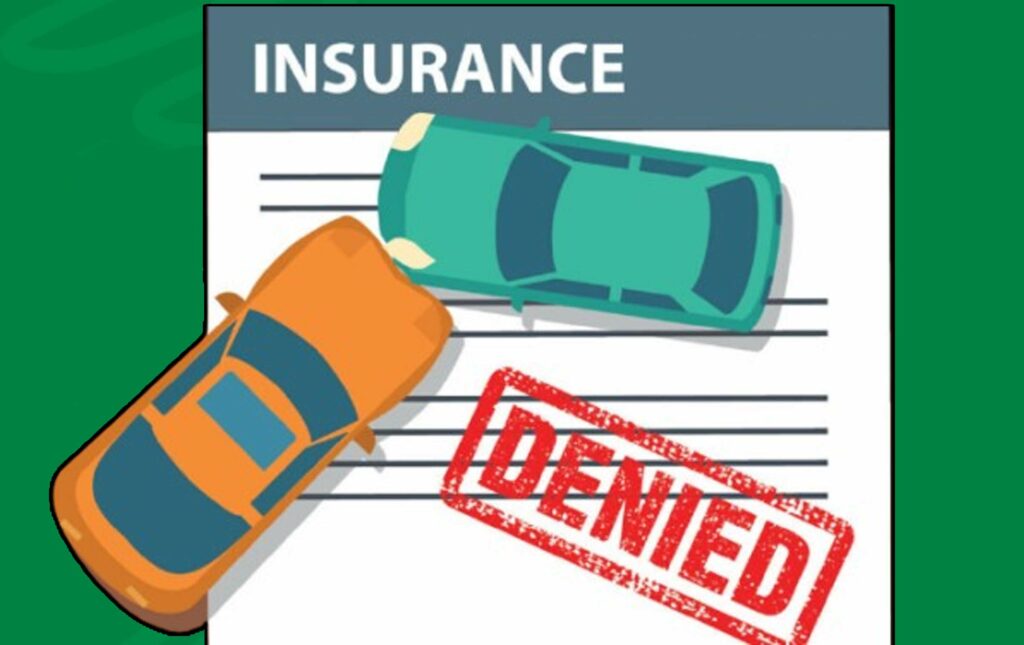Can a car insurance company deny coverage? Yes, an insurer can do that, and they can for various reasons. Auto/car insurance with liability coverage is compulsory in almost every state in the United States apart from New Hampshire.

Qualifying for car coverage is not always guaranteed. However, insurers can deny coverage for many drivers, and it can happen for different reasons. Did your insurance applicant get denied, or did your insurer decide not to renew your policy? In this article are the reasons a car insurance company can deny coverage and what you should do after they deny your coverage.
Can a Car Insurance Company Deny Coverage?
Just like I have mentioned above, an auto insurer can deny coverage for different reasons. They might decide to refuse to offer coverage if they think a driver is too risky and likely to file a claim. Drivers under the age of 18 usually can’t get their own policy and need to be added to a family member’s policy.
Keep in mind that each state has its own rules about why insurance companies can deny individual applications for coverage. Some states don’t allow insurers to base their coverage decisions on factors like age, credit score, gender, or ZIP code.
Reasons you may be Denied Car Insurance
You can have your car coverage application denied for different reasons, which may be tied to different personal factors like
Driving Record
Your driving history is one of the hugest and most crucial parts for getting car insurance. If you’ve been driving for years without any tickets or accident records, insurers will likely approve your application quickly. However, if you have a history of violations or at-fault accidents, your coverage may be denied. Also, a bad driving record or multiple at-fault claims can also make it harder to get insurance after your policy was cancelled.
Driving Habits
Insurance companies may not want to insure drivers with long commutes or frequent long-distance trips. The more you drive, the higher your risk of accidents. So those who drive less or have short commutes are seen as lower risk.
Type of Vehicle
Always remember that the car you drive matters. Insurers see standard sedans as less risky than new sports cars. Safety ratings also play a role; safer cars are always cheaper to insure. Cars that are frequently stolen might be harder to insure or be very expensive to insure.
Credit Score
Your credit score can be one of the biggest factors that affect your insurance eligibility and premium rates. Insurers believe that people with good credit are more responsible and won’t file many claims. If you have a low credit score, it’s advisable to explain your situation to insurers. Shopping around can help you find affordable rates. As companies like Geico and Nationwide often offer better rates for those with bad credit.
Financial History
Apart from your credit score, insurers may check your payment history and credit utilization. They want to make sure that you can reliably pay your premiums. Multiple recent credit inquiries can be a turnoff, suggesting potential financial problems.
Age and Location
Your age and where you live may affect your insurer’s decisions. Younger drivers usually pay more than middle-aged drivers. Living in a high-crime area or near dangerous intersections can also make your premiums very high.
What to do if you’re Denied Car Insurance Coverage
Most states require drivers to have a minimum amount of insurance. If you’re not offered coverage by traditional insurance companies, you still need to find and buy this minimum coverage. If not, you could face serious financial and legal problems if you’re in an accident or caught without insurance.
Here are your options if you’re denied coverage:
Contact High-Risk Insurers
High-risk insurance companies are insurers that specialize in covering drivers who can’t get standard insurance. While their rates may be higher, you have a good chance of getting approval.
Join a Family Member’s Policy
You can meet and ask a family member if they can add you to their policy. This might work if you live with them in a home. However, your vehicle might not be eligible to be added, especially if you are not the owner outright. Also, the insurer may still deny coverage if you don’t meet their guidelines and requirements.
By exploring these options, you can find a way to get the necessary coverage and stay legal and safe on the road.
How to Avoid Being Denied Car Insurance Coverage
If you’ve been denied car insurance or you are just worried about it, here are steps to improve your chances of getting a policy:
Practice Safe Driving
Ensure that you avoid speeding tickets, accidents, and other violations. A clean driving record shows insurers that you drive safely and are less likely to file a claim. After a few years of safe driving, it may be easier to get affordable and cheaper coverage.
Take a Defensive Driving Course
Completing a defensive driving course can help you qualify for discounts with some insurance companies. What you learn in the course can help you in avoiding accidents and tickets that might make your premiums go high.
Improve Your Credit
In most states, your credit history can greatly impact your car insurance rates. Better credit usually means lower risk to insurers, as drivers with good credit tend to file fewer claims. To improve your credit, you will have to pay bills on time, limit new credit checks, and keep your credit utilization low. This can help lower your premiums and make it very easy to get coverage.
Choose a sensible vehicle
If your car is considered too risky to insure, think about switching to a safer and cheaper model. Some vehicles are very cheap to insure, which can make it easier and quicker to find coverage.
By following all the steps listed in this article, you can increase your chances of getting and keeping car insurance coverage.



